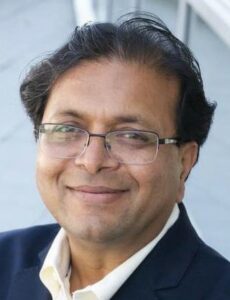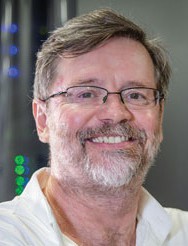LA JOLLA – UC San Diego’s new campus will provide excellent learning opportunities in the fields of artificial intelligence, computing and data science, and help the talent pipeline and workforce of the future.
Last month, the Board of Regents of the University of California approved the creation of a 12th school at UC San Diego, the new School of Computing, Information and Data Sciences (SCIDS), which will allow more opportunities to conduct interdisciplinary research and various educational programs. .
The new school combines the strengths of the San Diego Supercomputer Center (SDSC) and the Halicioğlu Data Science Institute (HDSI), both of which prepare students to meet the needs of the business community.
SDSC is a national leader in high-performance and data-intensive computing, while HDSI is a pioneering interdisciplinary institute advancing data science and AI education and research. (The HDSI name comes from philanthropist and computer science and engineering alumnus Taner Halicioğlu.)
More on HDSI and SDSC
“HDSI and SDSC share the unique challenge of building academics and transdisciplinary research,” said Rajesh Gupta, founding director of HDSI. “Their coming together under SCIDS will involve new partnerships and finding new opportunities to create talent in emerging areas, including artificial intelligence.”


Founder Director
Halicioglu notes
Science Institute
UC San Diego
Among HDSI’s industry partners are Deloitte, Dexcom, Intel, Naval Information Warfare Center, Qualcomm, San Diego Association of Governments (SANDAG) and San Diego Gas & Electric.
HDSI also provides employers with access to a career services platform. Powered by 12Twenty, HDSI provides a platform for employers to engage with our data science talent pool. With more than 1,500 majors and 837 students, UC San Diego has one of the largest data science programs in the country.
Established by the National Science Foundation in 1985 as one of the nation’s first institutions of higher education in computing, SDSC’s mission has evolved and grown.
SDSC seeks to strengthen today’s science and engineering community and help develop the next generation of scientists, technologists and engineers, and provides professional development for educators to help them prepare students for the future use of technology in their careers.
“We expect that this new use of technology will greatly reduce the friction for students moving between departments, thus benefiting transfer students from community colleges to CSU or UC campuses, as well as K- 12 to college students, and college to Ph.D. students,” said Frank Würthwein, SDSC director and founding member of HDSI.


Director
San Diego Supercomputer Center
UC San Diego
The goal of SCIDS is to provide a deeper understanding of how data shapes society and prepare the next generation of highly skilled workers driving the advancement of artificial intelligence.
The school will play an important role in the development of data science in all disciplines, as well as in the development of advanced computing applications. It will also act as a catalyst to increase collaboration across existing schools, academic departments and studies, with the aim of establishing new research departments.
SCIDS deals with Mandatory Requirements
UC San Diego expects to grow its enrollment to 8,000 students with 50 faculty members in 16 different academic disciplines.
SCIDS reinforces UC San Diego’s commitment to addressing one of the most pressing needs of the modern age – turning data into actionable knowledge. Artificial Intelligence and machine learning are creating new career opportunities for students interested in academic research and scientific professions from many disciplines.
By translating data science from the classroom to research and the wider workplace, SCIDS will prepare students for their careers by providing opportunities for them to engage directly with industry and government partners, to include emergency responders; municipal, state and national resource management agencies; and non-profit organizations.
“One goal of a school is to create that talent, but that talent pool is not just created,” Gupta said. “It was created by faculty and researchers who work in the area, because knowledge of the area is also growing…. The reason UC San Diego and the top universities are there is because the people who teach at the schools of we are also the people who are developing knowledge in those areas. They are the ones who write the next chapters of knowledge in these areas.”
Students will learn first-hand how data technologies can allow organizations to better address societal challenges ranging from climate change mitigation and social justice issues to technical and health care challenges. .
Gupta said the school is about “creating talent for the future,” and that it’s time “because there’s a new discipline emerging — translating data into actionable knowledge” — and that while data has always been a method of extracting knowledge. , what has changed is that data is actually now doing things like directly controlling cars and other automations that fall under the AI umbrella.
“The question is, ‘What kind of talent do we want to develop that can drive this AI boom?'” Gupta said. “There is probably no company in San Diego or outside of San Diego, regardless of whether what is their business, it doesn’t want to hire an AI expert.
Not every AI expert goes to Google or Facebook or Microsoft but they do, for example, the San Diego (County) Sheriff’s Department, which employs seven to six full-time employees. 10 from our data science program and has over a dozen. staff from UC San Diego in data science.”
Gupta said organizations like SANDAG are also an important part of the pipeline, adding, “There is no organization that does not need such talent.”
He said that how to properly deliver that talent is a challenge.
“We are an international university, but we also have a large regional presence and part of the agreement was to build an environment for companies, from start-ups to mid-sized companies. , related to our researchers and our students, to fill those needs.”
UC San Diego
Established: 1960
CEO: Pradeep Khosla
SUBJECTS: La Jolla
BUSINESS: Higher education, research, health care
COST: $49.5 billion (2023-24)
STUDENTS: 42,000
WEBSITE: ucsd.edu
CONTACT: 858-534-2230
SOCIAL IMPACT: UC San Diego is closely associated with the Salk Institute, the Sanford Burnham Prebys Medical Discovery Institute and the Scripps Research Institute.
NOTE: UC San Diego is ranked among the world’s top public research universities
#Regents #School #Information #Science #UCSD #San #Diego #Business #Journal